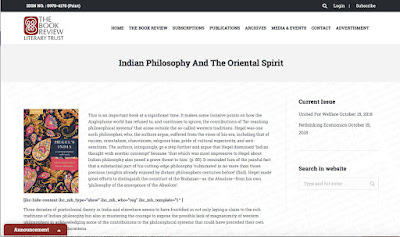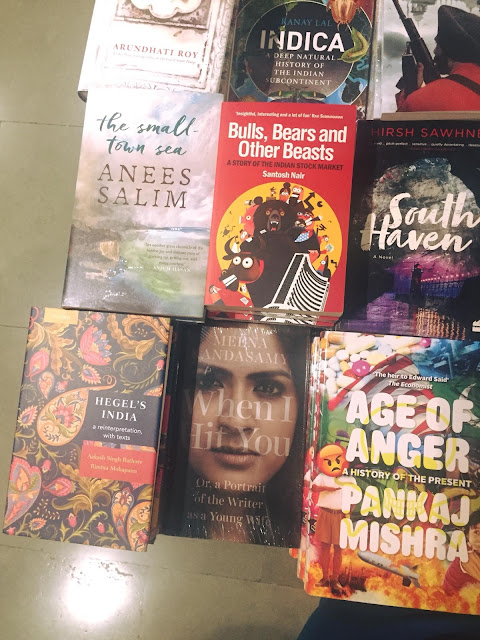'It is little known that the great teacher of Karl Marx, German philosopher G.W.F. Hegel, wrote extensively on the Gita. Hegel’s long two-part essay entitled, “On the Episode of the Mahabharata Known by the Name Bhagavad-Gita by Wilhelm von Humboldt” is a detailed critique of not only the Indological work of Humboldt, but also of the philosophical foundations and teachings of the Gita itself.'
— The Wire, 'Hegel's Gita: A Philosopher Haunted by Indian Spirit'. An excerpt from Hegel's India: A Reinterpretation, 04/NOV/2017
Hegel’s India was nominated for Best Non-fiction Book of 2017, Tata Literature Live! The Mumbai LitFest.




































